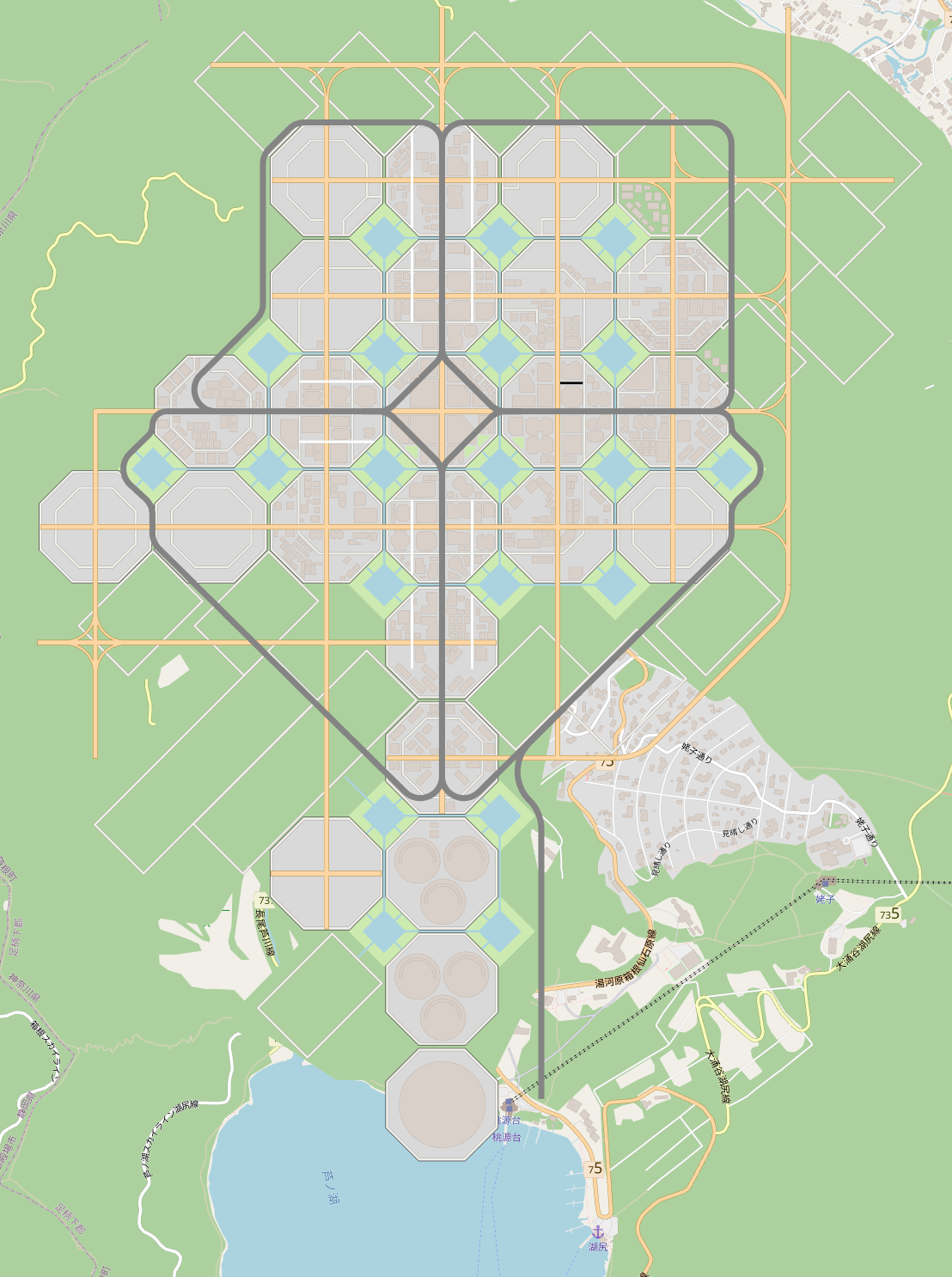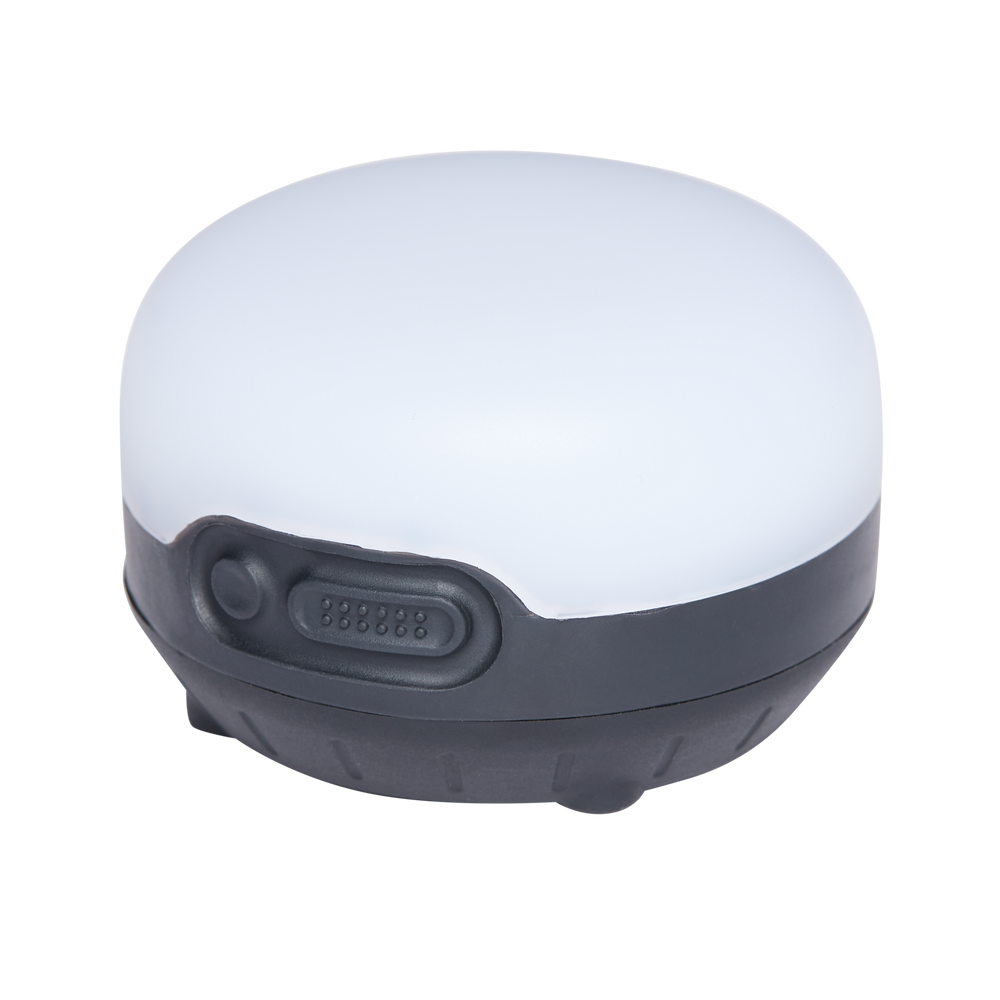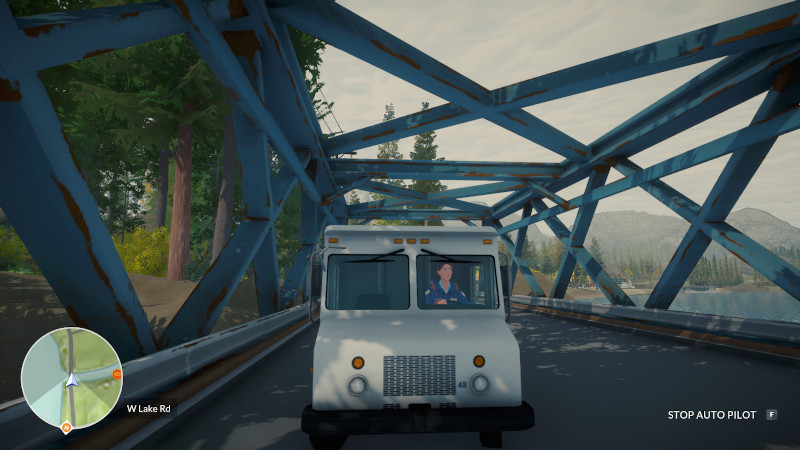Latest reviews
Der großspurige Untertitel “Von den Anfängen bis in die Gegenwart” wird von den Autoren leider nicht erfüllt aber Nichtsdestotrotz handelt es sich bei diesem Buch um gutes Nachschlagewerk zur Stadt Hannover.
Von einzelnen Brunnen über Straßen bis hin zu bedeutenden Persönlichkeiten der Stadt ist alles vertreten, was in dieser Stadt Rang und Namen hat(te).
Lexika laden mich nicht zum schmökern ein aber sind eine gute Möglichkeit um schnell etwas nachzuschlagen, was es im Netz (komischerweise) zu Hannover oft nicht oder nicht ausreichend zu finden gibt.
Insgesamt eine Empfehlung für alle Freunde der Hannoverschen Geschichte. Alle Anderen dürfen es gerne im Buchregal stehen lassen.
I used to use Twitter but only for reading. I don’t know why but on Mastodon I feel more inclined to actually post statuses.
So this is a city that is supposed to be a fortress for humanity. It is a planned city, for the most part based on an octagonal grid pattern.
Basic structure

Gaps in the octagon are used to house water reservoirs which are interconnected by drainage channels. The city seems to be designed to deal with flooding events. Sounds reasonable considereing that nearby old Tokyo is submerged within the pacific ocean (in this distant future of the year 2015, that is). There also seems to be a reliable alarm system. The whole population fits into onsite emergency shelters. Central city highrise building can be submerged into the ground in case of a catastrophe.
Nature & Environment
The outline of the city blocks vaguely resembles crucifix that is 3.5km on its long axis, which appears tiny to me. But I like the idea of living in a tiny superdense city surrounded by a beautfull green mountain range and a scenic crater lake. Too bad they had to destroy part of a natural reserve (and a golf course) to build it.
Transportation
The city seems to have a reliable monorail system but also a dense grid of six lane roads which seems incredibly car oriented for my taste. Who needs that many lanes? Well maybe if the city is designed to be navigated by giant robots to destroy titanic (alien?) monsters that regularly venture to the city center for no reason.
Pupulation
The city is largly populated by officers of the semi military force NERV with cool uniforms and a weired cult like slogan on their logo. In the later parts of the show, the city appears strangly empty and melancholic. I like the vibe of it but I wouldn’t wanna live there.
The first few chapters are a great journey. The last few chapters feel somewhat convoluted…
This is a small camping lantern for lighting your tent (or whatever really). It’s small in size and the light is bright enough for most uses, while also being dimmable. Positioning is really easy, as it has hooks and magnets in the bottom. It’s also water resistant.
There are also other versions than this R+ but I wouldn’t recommend them, as they can’t be charged with a USB. Speaking of which, it’s a bit embarrassing that the USB in use is of the outdated micro variety and not USB-C.
You can set the lantern to any color, which in my opinion is just spurious. Unnecessary complexity that’s introduced just as a marketing “advantage”. Because of this it’s also a bit overpriced.

The big button controls brightness while the small one operates color. (Credit: Black Diamond. Fair use.)
Wrap up
This is a good lantern which has pretty much all the features you’d want, and some useless extra too. It’s not perfect but I would still recommend this product. It’s also widely available around the globe.
The protagonist holds a stressful job in the big city. Circumstances lead them to an extended stay in their old hometown. They rekindle old relationships, form new ones, and ultimately have to make a big decision.
It’s a trope all too familiar from film and television, but less common in video games. Lake, released by Dutch indie studio Gamious in 2021, embraces the premise wholeheartedly.
Holiday job
The year is 1986. You play as Meredith, a 44-year-old programmer who spends her holiday in her old hometown of Providence Oaks, Oregon. It’s not much of a vacation, though! For two weeks, you fill in for your dad at the local post office, delivering letters and packages to members of the small lakeside community. Meanwhile, your parents are on an actual vacation in Florida.
The core mechanic of the game is to drive the Post Office truck, put letters in mailboxes, and deliver packages to homes and businesses. Occasionally, this offers opportunities for interaction with the town’s residents. These interactions are used to advance a slice-of-life narrative.
There’s no larger plot to uncover here, but you can get involved in small town drama. A lumberjack is protesting plans for real estate development; a young couple is on the run from the law; a small video rental store is fighting for its survival. Many of the characters are one-note stereotypes, but it’s still fun to talk to them.
Trucking along
These interaction opportunities are only delivered in small morsels. You spend a lot of your time just driving around and delivering mail without talking to anyone. (Occasionally, Meredith will issue a bit of monologue when putting a letter into a mailbox, like “Here’s your mail”.)
The local radio station helps break the monotony, until you notice that the same handful of songs keep repeating, at which point you’ll want to turn the radio off to keep your sanity.

Meredith is driving her truck around the lake. Get used to the view, because you’ll be seeing it a lot. (Credit: Gamious. Fair use.)
When outside the truck, Meredith can walk slowly or … walk slowly. In theory, you can accelerate her walking speed, but the increase is almost imperceptible.
Lake, then, is a game best played when you want to let your mind wander. The town is pretty to look at, and there are some nice details, like a fox or a deer crossing the road, or changes in the weather.
Uncanny hometown
Overall, however, the game’s reach exceeds its grasp. There’s a reason most “walking simulators” stick to just that: walking. The driving mechanic is awkward and immersion-breaking—you can drive your truck into anything or anyone without as much as a honk or a frown.
On my system, which plays far more demanding games without issues, the game’s frame rate dropped from time to time, and the audio sometimes fell out of sync. There were also occasional visual glitches: cars floating in the air, people disappearing, lights flashing or flickering. Close-ups on characters are straight from the uncanny valley, with dead stares and robotic lip movement.
The game has three different endings; to its credit, you can pursue a male or female love interest. It doesn’t really broach the issue of small town homophobia in a meaningful way, and I was disappointed in the limited choices it ultimately offered for Meredith’s future.
The Verdict
All in all, I cannot recommend Lake: the mail delivery mechanic is too tedious, the technical problems are too numerous, and the story is too underdeveloped. Indie games like Firewatch and have demonstrated that it’s possible to deliver technically excellent narrative experiences with a small team—Lake never reaches that high bar. That said, many folks have found enjoyment in the game, and if you’re really looking for that small town vibe, you may want to check it out.
Philip Ball is a veteran science writer whose books have shed light on a wide range of subjects, including molecular physics, pattern formation, music psychology, and quantum physics. In The Book of Minds, Ball attempts to penetrate the mystery of “mindedness”.
How would it feel to experience the world like a bat or a bee? Can we create artificial minds? And if alien life forms are out there, how would their minds relate to ours?
Imagination and its limits
Ball introduces the idea of a “space of possible minds” in which to situate any being. Using dimensions such as consciousness, agency, intelligence, and experience, it becomes possible to at least speculate systematically about how an animal mind might differ from our own.
Ball then surveys the forms of thinking, sensing and reacting that can be found in living things. He provides a brief introduction to newer theories of consciousness like Integrated Information Theory, and summarizes the state of artificial intelligence around the time the book was written.
The author frequently reminds us that, while we can speculate about dimensions of “mindspace”, we cannot transcend the limitations of our own minds when imagining the experience of other beings.
That doesn’t stop him from speculating about the possible minds of extraterrestrials. Ball notes that much of our science fiction merely extends human qualities and motivations into “alien” minds—the war-like species, the scientific species, etc. He reaches the obvious conclusion that we can say very little about what alien minds would actually be like.
Why agency matters
In the penultimate chapter, Ball engages in an impassioned defense of the concept of “free will”. While acknowledging that the term is problematic due to metaphysical connotations and lack of clear definition, he argues that the concept of agency as realized through minds is crucial to make sense of the world.
Ball dismisses questions of determinism as irrelevant. Of course, he says, everything happens because it could not be otherwise—that’s a banal, even tautological observation. But the causes of events don’t become more intelligible by reducing a person’s decisions to the interaction between molecules in their brains.
Minds produce decisions—that’s what they evolved to do—and thereby they cause things to happen. That distinguishes minds from other objects in the universe. We therefore need to approach agency as a subject of study: Why and how do minds decide certain things? It’s an implicit defense of fields like psychology for comprehending a universe that has minds in it.
While the chapter is essentially a long philosophical argument, I found it to be the most interesting one in the book. As for the remainder of The Book of Minds, regular readers of science writing are unlikely to encounter a lot of ideas they’ve never heard of before.
The Verdict
Ultimately, Ball’s core subject is riddled with so much uncertainty that it does not really warrant a 500-page book. Readers have to work through a lot of variations of “we don’t know” or “we can’t know” to get to the ideas Ball wants to bring across. That’s a shame, because those ideas are interesting—they’re just buried in prose.
The museum is free and houses quite some nice, informative, sometimes beautiful, sometimes disturbing exhibits illustrating the history of the city and its surroundings since Stone Age. Unfortunately, object labels and other descriptive texts are in German only.
I’ve taken a ride on the Cologne to Hamburg line. In comparison to Deutsche Bahn the ticket was pretty cheap. The service is a bit inferior though I feel. I couldn’t succeed to connect to the wifi apart from a short period of less than a minute though trying on three different devices and two different operating systems.
Unfortunately the schedule on the ticket doesn’t give information on the platform. I could find a bitly short URL redirecting to a Deutsche Bahn page with incomplete platform information. That’s complicated and bad for data privacy.
Public loudspeaker announcements in the train very pretty frequent and partly completely irrelevant admonishing behavior of some individual passengers publicly.
Considering the comparatively affordable price anyway a good option.
A very friendly great place to get good vegan Levantine cuisine in Ehrenfeld. Unfortunately, takeaway packaging isn’t very sustainable, comes with quite some aluminum.
